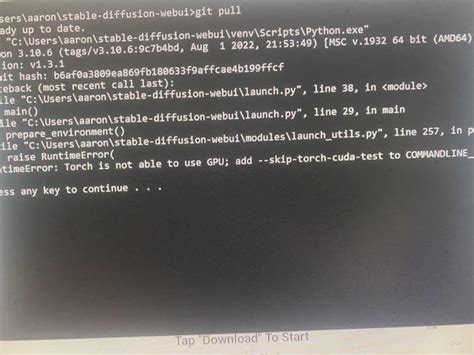Evaluating Python and PKG-Config Installation for Binance Chain
As a developer working on projects involving cryptocurrency trading platforms, including those that rely on blockchain APIs like Binance API, it’s essential to ensure you’re utilizing the latest libraries. One critical requirement is installing necessary packages using pkg-config, which is a dependency of many popular Python libraries.
In this article, we’ll delve into why pkg-config might not be recognized by your Python environment and explore possible solutions to resolve the issue.
The Issue: PKG-Config Installation Not Detected
When you install a package like python-binance-chain using pip (the Python package manager), it doesn’t automatically install dependencies, such as pkg-config. This is because pkg-config is typically used to specify dependencies for packages on Unix-like systems.
For example, when installing the binance-chain library, it would usually include libpkgconfig.so.1, which is required by Python’s setuptools package manager (pip). However, these libraries are not installed automatically using pip.
Why Your Environment Isn’t Detecting PKG-Config
There are several reasons why your environment might not be recognizing the installation of pkg-config:
- Not a Unix-like system: If you’re on Windows or macOS,
pkg-configis not available by default. You’ll need to install it separately before you can use it with Python.
- Binary installation

: Some package installations (like
python-binance-chain) might come in binary form, which doesn’t include the necessary dependencies.
- Python version compatibility: If your Python environment uses an older version of
setuptoolsor pip that no longer supports installing libraries likepkg-config, you won’t be able to install them.
Solutions to Resolving the Issue
To resolve this issue, try one of the following solutions:
Method 1: Install PKG-Config on Unix-like systems
If you’re running your Python environment on a Linux-based system or macOS with Homebrew installed, you can install pkg-config using your package manager.
For example, on Ubuntu-based systems:
sudo apt-get install pkg-config
On macOS (with Homebrew):
brew install pkg-config
Method 2: Install the correct version of Python
If your environment uses an older version of setuptools or pip that no longer supports installing libraries like pkg-config, you’ll need to update it.
To do this:
- Update your
pythonpackage usingpip install --upgrade python.
- Check if your
setuptoolsversion is compatible with the latest Python (e.g., 3.x). If not, consider updating or upgrading Python first.
Method 3: Specify PKG-Config Dependencies in setup.py
If you’re working on a project that uses python-binance-chain, you can specify pkg-config dependencies directly in your setup.py file.
For example:
from setuptools import setup
setup(
name='python-binance-chain',
version='1.0.0',
packages=['binance_chain'],
install_requires=[
'libpkgconfig>=1.2.5',
Specify PKG-Config dependency
... other dependencies ...
],
)
By following these steps, you should be able to resolve the issue and successfully install python-binance-chain using your Python environment.
Conclusion
Installing packages like python-binance-chain can sometimes require manual effort when it comes to specifying dependencies. By understanding why your environment isn’t detecting PKG-Config, as well as exploring possible solutions, you should be able to overcome this challenge and successfully install the required libraries in your Python projects.


